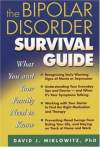The following resources are for people with bipolar disorder, their friends and families, and treatment providers. There are far more resources available then are listed below. These are the ones the Sutherland Foundation has found most helpful.
Books
“Hurry Down Sunshine,” Michael Greenburg, 2008
 |
A psychotic episode often has the qualities of a slowly gathering thunderstorm, whose buildup is only apparent in hindsight, in the midst of the storm’s full force of lightening and torrential rain.So much of what Michael Greenberg describes in his fine memoir about his teenage daughter Sally’s bout with bipolar mania, Hurry Down Sunshine, is familiar to those who have watched a family member slide into madness. When Greenberg’s wife receives the terse advice from a friend to take Sally “to the nearest emergency room”, it is a familiar moment for anyone who has had to make the decision to commit a loved one to psychiatric ward— the tipping point between the belief that things will work out and the realization that a family is completely ill-equipped to handle the situation on their own, even for one more hour. Forbearance gives way to urgency. Read Bob Sutherland’s entire review of “Hurry Down Sunshine”. |
” The Bipolar Disorder Survival Guide: What You and Your Family Need to Know” , David J. Miklowitz, Ph.D., 2002
 |
David J. Miklowitz is a Professor of Psychology at the University of Colorado Departments of Psychology and Psychiatry, and the Director of the Sutherland Center at CU. He developed Family Focused Treatment (FFT) for bipolar disorder and has written extensively on psychological treatments for bipolar disorder. ” The Bipolar Disorder Survival Guide” focuses on recognizing early warning signs of mania or depression; understanding everyday ups and downs and distinguishing these from symptoms; working with your doctor to find the right medication and therapy; and preventing mood swings from ruling your life, such that you can stay on track at home and at work. Miklowitz also provides an extensive list of national organizations focused on bipolar disorder and a bibliography, which includes books of first-persons account of bipolar. |
“An Unquiet Mind: A Memoir of Moods and Madness,” Kay Redfield Jamison, 1995
 |
Kay Redfield Jamison’ s autobiography explores her struggles with bipolar disorder and how it has shaped her life. From the seemingly lucid highs of mania to the dark depths of depression, Jamison explores the world and mind of someone who has bipolar disorder. Jamison is a clinical psychologist who is world-renowned for her research and scholarly writings on bipolar disorder. She is the recipient of the National Mental Health Association’s William Styron Award (1995), the American Suicide Foundation Research Award (1996), the Community Mental Health Leadership Award (1999), and was a 2001 MacArthur Fellowship recipient. She is Professor of Psychiatry at the Johns Hopkins University School of Medicine and is an Honorary Professor of English at the University of St Andrews. |
“Undercurrents: A Life Beneath the Surface,” Martha Manning, 1994
 |
Martha Manning is a clinical psychologist who writes poignantly about her own experience of severe depression, suicidal thinking and electroconvulsive treatment (ECT). |
“Darkness Visible: A Memoir of Madness,” William Styron, 1990
| William Styron was a Pulitzer-prize winning author who wrote about his own experience of severe depression. |
Other Local Resources (Boulder, CO)
The Colorado Family Project http://coloradobipolar.com/ (303) 492-1668
The Colorado Family Project, based at the University of Colorado Boulder, is a group of clinicians and researchers who specialize in working with children aged 9 to 17 years with or at risk for bipolar disorder (extreme high and low moods). Families who participate in the research study are provided with a thorough diagnostic evaluation, family-based therapy, and when relevant, medication management from a psychiatrist. There is no cost for participating families.
National Organizations
Depression and Bipolar Support Alliance http://www.dbsalliance.org/ (800) 826-3632
The Depression and Bipolar Support Alliance (DBSA) is a patient-directed organization focused on depression and bipolar disorders. The organization fosters an understanding about the impact and management of these life-threatening illnesses by providing up-to-date, scientifically-based tools and information written in language the general public can understand. DBSA supports research to promote more timely diagnosis, develop more effective and tolerable treatments and discover a cure. The organization works to ensure that people living with mood disorders are treated equitably. DBSA support groups exist in many communities across the United States. To find a group near you, select ” Find Support” on the DBSA website.
National Alliance on Mental Illness http://www.nami.org/ (800) 950-NAMI (6264)
National Alliance on Mental Illness (NAMI) is the nation’ s largest grassroots mental health organization dedicated to improving the lives of persons living with serious mental illness and their families. Founded in 1979, NAMI has become a leading voice on mental illness, with NAMI chapters in every state and in over 1100 local communities across the country. Members join together to meet the NAMI mission of advocacy, research, support and education.
Research
National Institute of Mental Health http://www.nimh.nih.gov/ (866) 615-6464
The National Institute of Mental Health’ s (NIMH) mission is to reduce the burden of mental illness and behavioral disorders through research on mind, brain and behavior. This public health mandate demands that NIMH harness powerful scientific tools to achieve better understanding, treatment, and eventually, prevention of these disabling conditions that affect millions of Americans. To fulfill its mission, the Institute: (1) conducts research on mental disorders and the underlying basic science of brain and behavior; (2) supports research on these topics at universities and hospitals around the United States; (3) collects, analyzes, and disseminates information on the causes, occurrence, and treatment of mental illnesses; (4) supports the training of more than 1,000 scientists to carry out basic and clinical research; and (5) communicates information to scientists, the public, the news media, and primary care and mental health professionals about mental illnesses, the brain, behavior, mental health, and opportunities and advances in research in these areas. As part of its mission, NIMH provides information on the causes, symptoms and treatment of bipolar disorder. Publications can be found at: http://www.nimh.nih.gov/health/publications/
Massachusetts General Hospital Bipolar Clinic & Research Program http://www.massgeneral.org/ (617) 726-6188
The Massachusetts General Hospital Bipolar Clinic and Research Program, formerly known as the Harvard Bipolar Research Program, is dedicated to (1) providing quality clinical care, (2) conducting clinically informative research and (3) educating their colleagues, patients, as well as the greater community, about bipolar disorder. The website includes tools such as a mood chart and a treatment contract that can be downloaded.
Web Resources
NeedyMeds http://www.needymeds.org/
NeedyMeds is a 501(3)(c) non-profit that helps people who cannot afford medicine or other healthcare costs. The information at NeedyMeds is available anonymously and free of charge. NeedyMeds has three areas of information on assistance programs. (1) ” Patient Assistance Programs” are programs run by drug companies to provide free medication to those in need. (2) ” Other Programs” includes ” Assistance for Specific Diseases and Conditions” , which lists local and national programs that assist people with specific diseases or conditions. The programs in this category help with emergency assistance, medical assistance and insurance co-pays. ” Discount Drug Cards” help low-income people get medication at a discount price. (3) ” Government Programs” provides links to information about assistance programs in each state, Medicaid, the Federal Poverty Guidelines (which most states use to help determine program eligibility) and tax return request forms. For many Sutherland Center patients, this website is the starting point for finding affordable medications.
Bipolar Significant Others http://www.bpso.org/
The Bipolar Significant Other mailing list formed in 1995. It is an informal organization whose members – relatives or friends of people with bipolar disorder – exchange support and information about bipolar disorder by e-mail, and discuss issues related to the impact of the illness on families and intimate relationships.
Pendulum.org http://www.pendulum.org/
Since 1994 Pendulum.org has been the web’s premier resource for bipolar information. Bipolar Focus is a web community dedicated to providing high quality information, support and education to the consumers, family members, caregivers and other individuals whose lives have been impacted by bipolar disorder. The site is managed by a group of volunteers and contractors around the world – all of whom are either family members (with sons & daughters, brothers and sisters, or parents who have suffered from bipolar disorder) or people who have bipolar disorder. While none are mental health professionals, they are very familiar with the disease both through direct personal experience and extensive reading on the topic. They rely upon what they believe are good sources of scientifically accurate materials relating to schizophrenia and frequently consult with an ever growing group of bipolar disorder researchers.
